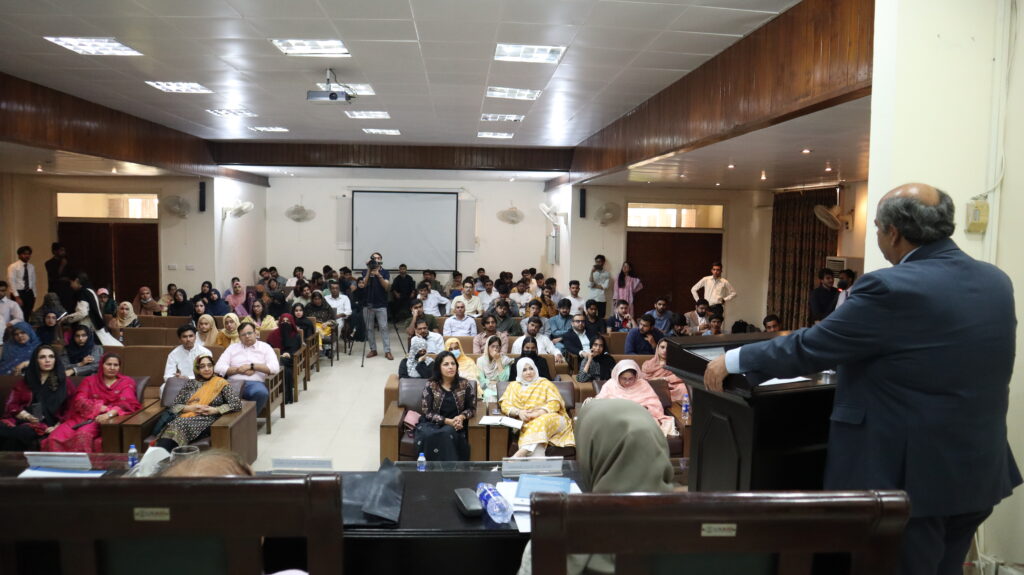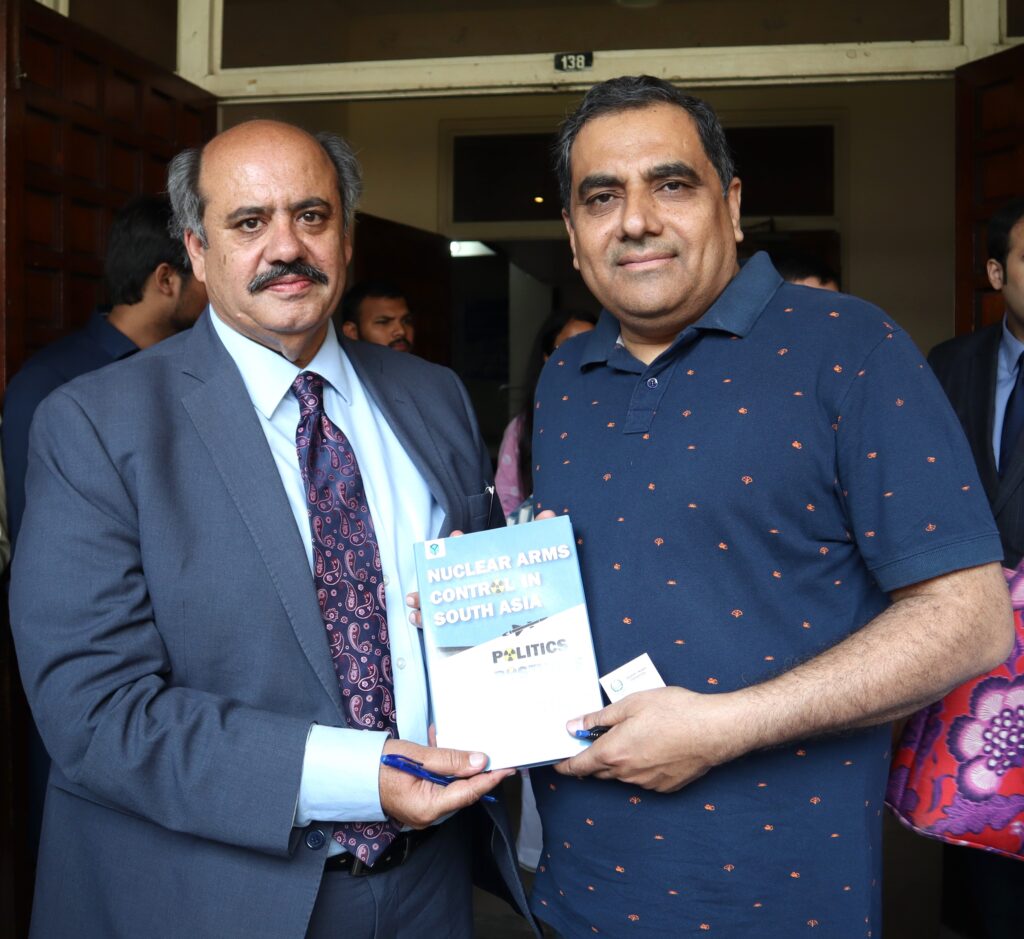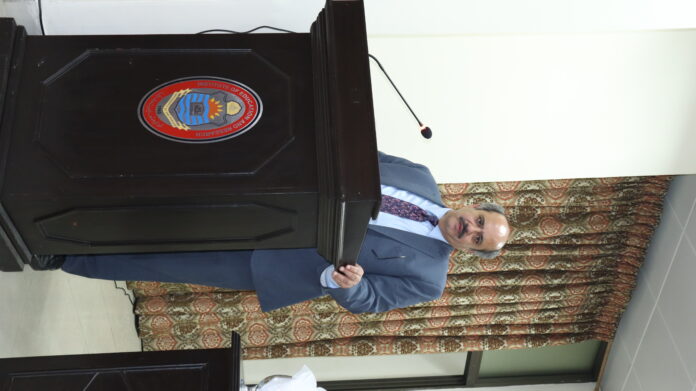- Advertisement -
LAHORE, Apr 16 (APP):Punjab University Vice Chancellor Prof. Dr. Muhammad Ali has said that the responsibilities of professors extend beyond teaching; they must contribute meaningfully to the nation, society, and humanity by embracing their broader roles.
He was speaking at the launch of “Nuclear Arms Control in South Asia: Politics, Postures and Practices”, authored by Prof. Dr. Zafar Nawaz Jaspal, organised by the Department of Political Science at Punjab University, held at Waheed Shaheed Hall on Wednesday.

The event was attended by Dean of the Faculty of Social Sciences at Quaid-e-Azam University Islamabad, Prof. Dr. Zafar Nawaz Jaspal; Dean of Behavioral and Social Sciences at PU, Prof. Dr. Iram Khalid; Professor Emeritus Dr. Hassan Askari Rizvi; Chairman Political Science Department Prof. Dr. Rana Ijaz Ahmed; Assistant Professor Dr. Muhammad Sharreh Qazi; faculty members, and a large number of students.
In his address, Dr. Muhammad Ali highlighted that institutions like QAU and PU have produced some of Pakistan’s most capable politicians, educationists, and civil servants. He praised Dr. Jaspal for his valuable contributions to national policy-making and said, “We must focus on research if we are to compete globally.” He added that the book would help counter international misperceptions about Pakistan’s nuclear program, portraying it as secure and responsible.

Dr. Muhammad Ali also appreciated Dr. Jaspal’s support during his tenure at Quaid-e-Azam University, saying that genuine support is not demanded, but earned. “Professors like Dr. Jaspal are role models for students—they work not only for academic excellence but also for national progress,” he noted.
Dr. Hassan Askari Rizvi, while commending the book, remarked that it is a significant contribution to the fields of international relations and security studies. He explained that global scrutiny of Pakistan’s nuclear programme began after 1979 and intensified post-1998 nuclear tests, often painting it as the so-called “Islamic bomb”. However, he added that more rigorous and effective scholarship since 2014, such as Dr. Jaspal’s work, has helped counter international propaganda.
He said that young scholars must now equip themselves with knowledge of emerging technologies like artificial intelligence and modern communication to engage with global security discourse.
Describing the book, Dr. Zafar Nawaz Jaspal said, “Knowledge must continue to grow, and as a writer, I’ve made every effort to avoid errors.” He reiterated Pakistan’s status as a sovereign nuclear state and stressed the need to trust and support national scholars and researchers. He also lamented the decline in the country’s reading culture, noting that high-quality research still has the power to gain international readership.

Dr. Iram Khalid called the book “a timely contribution” that would help students understand the historical and strategic dimensions of Pakistan’s nuclear programme. She praised the work for addressing both theoretical and empirical challenges in nuclear arms control.
Dr. Rana Ijaz Ahmed highlighted the strategic importance of South Asia, given the presence of nuclear powers like Pakistan, India, China, and Russia. He stressed the necessity of a strategic framework for arms control and affirmed Pakistan’s compliance with international legal norms.
Dr Muhammad Sharreh Qazi praised the book for its nuanced treatment of ideological and technological developments in the region. He underscored the importance of understanding India’s advancements in supersonic missiles, ballistic missile defense systems, and evolving strategic doctrine.

